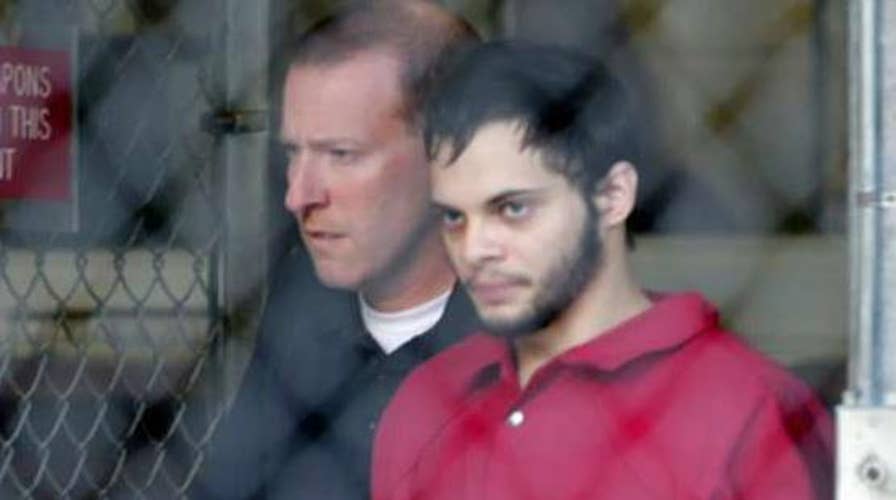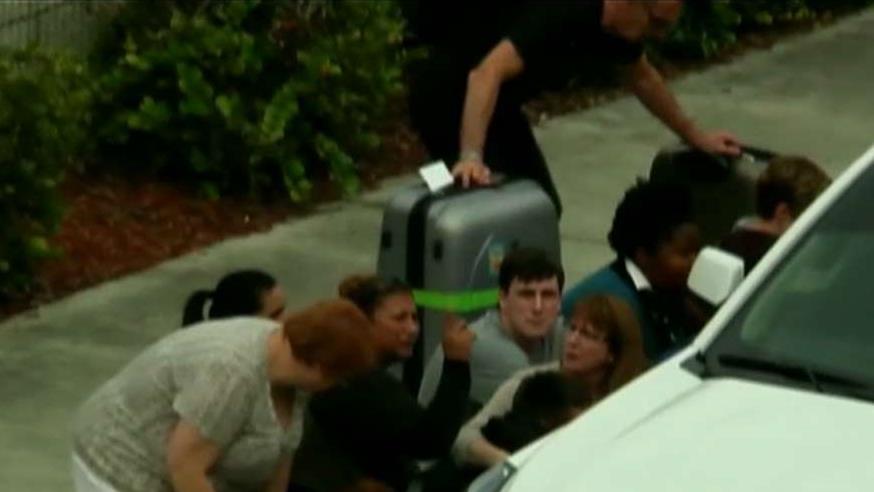No bail for Ft. Lauderdale airport shooting suspect
Phil Keating reports from the Broward County courthouse
The 26-year-old airline passenger who killed five people and wounded eight when he opened fire at the Ft. Lauderdale-Hollywood airport last year was sentenced to life in prison on Friday.
Esteban Santiago, now 28, pleaded guilty to five counts of committing acts of violence at the airport in connection to the mass shooting on Jan. 6, 2017. He also pleaded guilty to six counts of committing acts of violence at an international airport causing serious bodily injury.
On Friday, U.S. District Judge Beth Bloom sentenced Santiago-Ruiz to five consecutive life terms for the deaths and six consecutive 20-year terms for causing injury.
Judge Bloom called the rampage "85 seconds of evil" and said she found it difficult to "separate the evil of the acts from the evil in the man."
"You destroyed families in this senseless attack," the judge said.
An Iraq war veteran, Santiago was diagnosed after the shooting as schizophrenic but was found competent to understand legal proceedings. Doctors say he has improved with anti-psychotic medication.
“While nothing can even heal the wounds inflicted by the defendant’s unspeakable and horrific acts of violence, we hope that the life sentence imposed today provides at least some sense of justice for the victims and their loved ones,” U.S. Attorney Benjamin G. Greenberg said in a statement after the sentencing. “Though we all hope that such a tragedy never again occurs, law enforcement remains committed to making our community safer and caring for victims of crime when tragedy strikes.”
According to court documents, Santiago boarded a Delta flight from Anchorage, Alaska, checking only one item: a hard case containing a gun.
When he arrived at the Florida airport, the Iraqi war veteran recovered his luggage from baggage claim, entered a bathroom and loaded a 9 mm semi-automatic handgun.
He came out of the bathroom and began shooting at numerous people waiting at the baggage claim area.
Five people were killed and six people were seriously injured.
Once Santiago ran out of ammunition, he was confronted by a Broward County Sheriff’s deputy, who arrested him without incident.
After his arrest, the FBI revealed that agents in Alaska had previous contact with Santiago when he told them in November 2016 that the government was controlling his mind and was forcing him to watching Islamic State group videos.
The Sun-Sentinel reported that he was agitated and incoherent when he spoke with FBI agents and had a loaded magazine on him. He left his gun and infant son in a car.
The FBI notified local police, who took him in for a mental health evaluation. Police took a loaded handgun from him.
The newspaper reported that 10 days after the FBI visit, police in Alaska sent Santiago a letter asking him to pick up his gun. The firearm was released to him on Dec. 8.
It’s unclear if it was the same handgun used in the shooting.
Four weeks later, Santiago boarded the flight using a one-way ticket to Florida.
Santiago, a native of New Jersey, has family in Puerto Rico and a young son in Alaska, court records show. He did not speak in court Friday and no family members spoke on his behalf.
“While this sentence cannot erase what happened, may it serve to demonstrate society’s commitment to honor and remember those who suffered that day,” Robert F. Lasky, Special Agent in Charge for the FBI in Miami, said in a statement.
The Associated Press contributed to this report.




